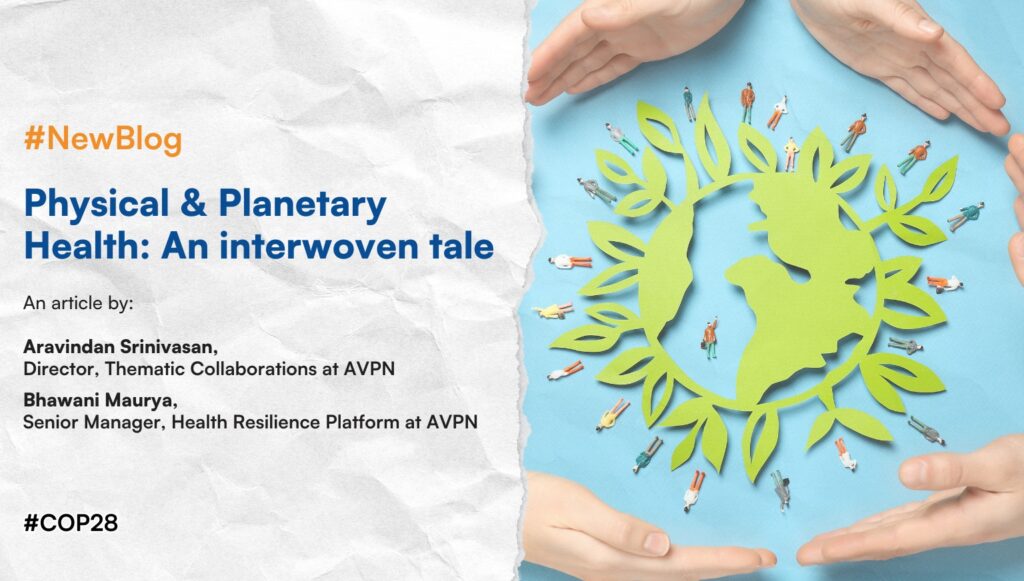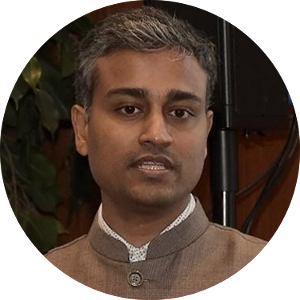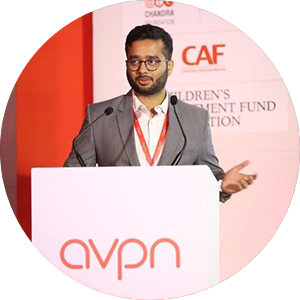

It is widely known that climate change and its associated effects have a detrimental impact on health, especially when you consider populations most susceptible to climate change’s negative impacts. With over 3.6 billion people who comprise of these populations with highest climate risks, it is critical to note how climate change’s impacts & environmental degradation have caused negative health impacts on them as an interlinkage. But there are also other interlinkages- zoonoses, which are driven by climate change are linked to negative health metrics directly. Climate change also causes biodiversity loss & changes in agricultural output & practices which also negatively impact human health (and planetary health). When one considers the climate finance principle of “do no harm”, considering positive health outcomes of climate finance for the populace is important through climate financing. While the whole world has witnessed negative impacts of these interlinkages of climate and health, regions like South Asia and Southeast Asia are examples of where these interlinkages are increasingly evident. Even with climate and health alliances growing globally, such as the Global Climate and Health Alliance started in Durban, the Climate and Health Alliance of Australia, the US Climate and Health Alliance, the UK Health Alliance on Climate Change or the Irish Climate and Health Alliance, the South Asia and Southeast Asia region is thoroughly underrepresented, making it a challenge to reckon with in this region.
While in Southeast Asia, over 640 million people are vulnerable to climate change’s impacts, such as rising sea levels, weather extremes (like floods, droughts) and higher temperatures which impact health, over 2 billion in South Asia are at high risk of the same. In South Asia, it is also coupled with other environmental degradation problems (with health risks) such as the smog crisis in the North Indian-East Pakistan belt, which also have roots in anthropogenic activities, with dire health consequences (like respiratory diseases). In South Asia and Southeast Asia, floods caused by increased precipitation and rising sea levels, and cyclonic activities, have led to displacement of populations, in India, Nepal, Pakistan and so on, which have led to the crisis of climate refugees who bear the brunt of negative health impacts, including mental health, an issue rising at an alarming rate. In central India and other regions of South Asia and South East Asia, droughts and crop failures have led to impoverishment, changing agricultural patterns which increases diseases, and even farmer suicides due to the mental health brunt of making ends meet.
There is also a slow burn of extended exposure to environmental degradation in the region, which has led to a breakdown in food systems and water security issues, which comes with its own set of problems. Malnutrition, diarrhea, infectious diseases, zoonoses, respiratory ailments, are set to increase in this region susceptible to climate risks and its associated health risks.
This region is also plagued with issues like new threats from pathogens as there is increasingly an overlap between human, plant and animal systems as a result of rapid urbanization, which exacerbate climate change and health problems together.
While solutions do exist to safeguard the region from these negative effects, they need to be adapted to the region rather than just emulated without context, leveraging the more effective One Health approach, combining a multi-sector, multistakeholder, multifaceted way to approach climate and health issues in the region.
There is a dire need to approach climate and its associated health challenges in the South Asia and Southeast Asia region with a unifying, integrated approach with various entities involved. The One Health approach has received significant mileage in the wake of the COVID-19 crisis and attempts to strengthen pandemic preparedness.
This approach is also critical in the region because of how interconnected people, animals, plants and the environment are, where addressing health issues cannot be done in silos or using a single discipline or actor. In this region, a complex dynamic is observed between disease outbreaks, deforestation, and afforestation with monospecific plantations (i.e., palm oil), which further highlight interlinkages between anthropogenic climate change or global warming, and health.
Even certain sub-areas of where the One Health approach is working towards, like antimicrobial resistance, which has seen an increase due to climate change, Southeast Asia is considered to be an epicenter, while the rest of Asia is considered a large hotspot.
The One Health approach can be helpful in these regions because it will lead to other metrics of sustainable development getting a boost (which otherwise plague these regions), such as economic growth and food security. In the long term, for the One Health approach to yield results in the South Asia and Southeast Asia region, there is a need for strengthening the environmental dimension, raising political support from different entities, improved financing avenues, developing cross-regional educational programmes and improving One Health surveillance and data sharing via regional cooperation.
The National Center for Biotechnology Information & the Center for Climate Change & Health, both cite many climate change interventions which can double as health interventions such as sustainable diets and food systems, cleaning up the air, water & soil. It is critical to develop the data and knowledge needed to contextualize these strategies into onground implementation, and this is where collective, impactful philanthropy can facilitate the learning and innovation needed to improve our capacities to respond to this challenge.
AVPN has long believed that locally owned and led agendas can enhance the likelihood of successful deployment of capital to address climate related health issues. AVPN through its pathfinder program will be setting up a dedicated initiative this year to increase awareness of the intersection of climate and health, as well as opportunities in the Asian region. It strives to increase commitments by social investors and other stakeholders to climate-health interventions toward high-impact solutions in Asia and improve flow of investable projects that address the climate and health intersectionality. AVPN will work with various health and innovation focused partners such as India Health Fund to create greater awareness on the impact of climate change on public health. Finally, by advocating for higher representation of Asian climate-health initiatives at global and regional forums, AVPN will foster two-way learning between Asian and global stakeholders and enhance visibility for our partners and programme participants.
As the deadline for the 2030 Agenda approaches, with sustainable development goals, SDG 3 and 13 being at the core of the climate-health axis, I stay optimistic given the traction unfolding at COP28 to bring this convergence. I call on our partners and members to join us to place the wellbeing of people, animals and our planet at the center of this conversation and bring back harmonious coexistence of all lives.

Aravindan Srinivasan is the Director, Thematic Collaborations at AVPN. Aravindan is responsible for the strategic direction and execution of programming for the health and climate portfolios at AVPN. This includes driving engagement with AVPN members, identifying strategic engagement with partners; designing innovative programs to address unique needs emerging, and leading communications about Asia’s leadership in these thematic areas. He has 15 years of experience across the private sector and the social impact sector. Aravind holds a Postgraduate degree in Management from the Indian School of Business and a Civil Engineering Degree from the National Institute of Technology. He serves on the board of local community development organizations in India such as “Maatram”, “Mukkamaar” and “Karnataka Health Promotion Trust”.

Bhawani Maurya is the Senior Manager, Health Resilience Platform at AVPN. His role is to support the Thematic Director and grow the AVPN network of social investment stakeholders and partners in South Asia to mobilize and strategically deploy capital to achieve impact. Bhawani has 7 years of experience in consultancy and product management, of which he spent the last 2 years leading the Product team, providing strategic support to organization for automation and deployment of projects in waste management sector. Role in his previous organization entails conceptualizing, designing, developing, planning and executing various products/ projects.
India Health Fund is registered as Confluence for Health Action and Transformation Foundation (CHATF), a Section 8
charitable company incorporated in India, supported by the Tata Trusts.